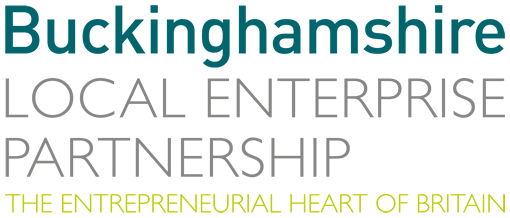27th March, 2025
The world may have changed - but Business Boards are key to local growth.
Now that the Chancellor has delivered her much anticipated Spring Statement, and the Office of Budget responsibility have published their economic for...

Berkshire LEP is working in partnership with the six Berkshire local authorities to support them to increase their electric vehicle infrastructure using Local Electric Vehicle Infrastructure Funding. A jointly funded Net Zero and Electric Vehicle Project Manager will work with all local authorities to secure economies of scale and support and advise on key areas such as procurement and emerging issues in EV infrastructure. The Project Manager will also lead on delivery of the LEP’s wider net zero activities based on the recommendations from Berkshire's first Net Zero Research report, focussing on the steps the region must take to ensure a greener, sustainable future for the local community.
Berkshire is also a key member of the Greater South East Net Zero Hub which supports the development and financing of local net zero projects.
The Berkshire Growth Hub is currently planning to deliver dedicated Net Zero support for SMEs in Spring 2024.
Through the Berkshire Skills Bootcamps, the LEP is delivering industry-specific green skills training in electric vehicles, electric bikes, and green retrofit technologies to meet the requirements of employers and develop a skilled workforce fit for the future.

Buckinghamshire LEP is supporting the emerging Net Zero clusters across its Buckinghamshire Enterprise Zones in the high-performance engineering, waste-recycling and energy sectors. This includes support for rocket technology firm, URA Thrusters, successful testing of a rocket using only water as a propellant - this innovative green technology can be used for sustainable spacecraft propulsion and opens exciting possibilities for the space sector and exploration. Likewise, Lunaz is rapidly becoming a leading innovator in the green transport sector from its headquarters in the Silverstone Enterprise Zone. Thanks to Buckinghamshire LEP funding, Lunaz at its pioneering new facility, is significantly increasing its production to over 1,000 vehicles per year to enable the de-carbonisation of vehicle fleets across the world.
Buckinghamshire LEP recently commissioned its first Net Zero Audit, to provide an analysis of the nature of Buckinghamshire’s green economy, understand the potential for growth and development, as well as set out a roadmap for delivery of Net Zero in the county.
Along with 10 other LEPs, Buckinghamshire LEP is a key part of the Greater South East Net Zero Hub, one of five regional Energy Hubs in England. The Energy Hubs provide local capacity support to bring investment into local, low-carbon energy infrastructure projects and make strategic links between local institutions. Buckinghamshire LEP produced a Local Energy Strategy that feeds into and informs the work of the whole south east Energy Hub.

Cheshire & Warrington LEP aims to become a world leader in zero carbon energy technology and innovation, building on decades of industry-leading experience in energy distribution systems, fuels and nuclear engineering and design. It is a partner to, and leading on, a number of projects and initiatives to generate sustainable and inclusive growth in the subregion and to assist wider local partners including local authorities in achieving Net Zero targets. Some activities underway:

With an eye on the future skills needed to deliver net-zero, HEY LEP Careers Hub has been shining the light on green skills with key events showcasing green careers to parents, students and careers leaders. The Humber region is host to many exciting and innovative green skills employers presenting fantastic opportunities to build a strong career in these growing fields. The Hub partnered with key stakeholders Centrica, Orsted and Wood PLC to demonstrate the entry routes and breadth of careers available within these exciting new fields.
HEY LEP and its partners have played a significant role in coordinating and developing a road map for industrial decarbonisation in the Humber region. The Humber Industrial Cluster Plan (HICP) was developed using funding from UKRI’s Industrial Decarbonisation Challenge Fund. The Plan was produced following extensive research and system modelling and culminates in a series of mandates for action to effectively transition the UK’s highest Co2 emitting region towards a net zero economy.
Through additional capacity and resource provided by working with the North East and Yorkshire Net Zero Hub, HEY LEP is leading the development of a Local Area Energy Plan (LAEP) for the region that will deliver spatial analysis on projected energy supply, transmission, and usage across different net zero scenarios. Working with anchor public and private organizations, this spatial analysis will be developed into a suite of actions across spatial and temporal scales.
HEY LEP is working to develop an internal carbon price and carbon insetting procedure for use by local authorities and others to promote low carbon projects and develop an internal net zero activity financing mechanism.

New Anglia LEP is drawing on its key regional strengths of Agriculture, Manufacturing and Renewable Energy to drive exemplar solutions to achieve Net Zero targets. With changeable climate conditions and food security high on the agenda, the Agri-food Industrial Decarbonisation project in partnership with UAE and Innovate UK KTN and funded by Norfolk County Council, is highlighting the challenges, solutions, and innovation pipelines to accelerate decarbonisation in this sector.
The Launchpad will fund outstanding innovation and collaboration research and development projects. It is complemented by the £7.5m funding for the Agri-Tech and Food-Tech Launchpad, collaborating with Innovate UK, Greater Lincolnshire LEP and Cambridge and Peterborough Combined Authority. The LEP will be hosting an Agri-food themed Clean Growth Event on 21st February 2024 to showcase and share what it has achieved and bring the sector an emerging innovation showcase. Other funding and support programmes such as BTTNZ (Business Transition To Net Zero) are essential to helping SMEs to fund some of their clean growth Journey.

OxLEP. The Energy Systems Accelerator pilot – better known as Mini TESA – is a world-leading multi-disciplinary hub, championing technical and services innovation in the energy systems transition. The hub is based at Osney Mead in Oxford and began operating at the start of 2022. Working in partnership with the University of Oxford, Mini TESA is one of several projects supported by the Government’s Getting Building Fund, set up with the aim to help kick-start the UK economy following the emergence of the Coronavirus. OxLEP secured £600k of funding for the Mini TESA project via the Getting Building Fund. Video.
The pilot project has seen the transformation of Holywell House into a co-working space with the potential to host up to 100 workstations (with social distancing), as well as being home to an ideas-exchange hub where different disciplines and organisations can develop radical thinking. Overall and collectively, by 2025, the six projects supported by the Getting Building Fund investment secured by OxLEP will have spearheaded the creation of 640 new jobs alongside the safeguarding of a further 290 jobs.

The Marches LEP. Herefordshire, Ludlow and North Shropshire College are transforming an old brick stable building into a dedicated teaching space for Low Carbon Technology on their Holme Lacy Campus. The result of this will be an exemplar low-carbon refurbishment appropriate for a national centre of excellence. The Low Carbon sector was worth £1.8bn in 2019/20 to the Marches economy, but there are significant skills gaps in this sector particularly for Production Engineers, Engineers and Technicians. This Centre will address this problem.
National Grid are installing monitoring equipment into 200 LV substations within the Marches LEP area. This will provide essential data to enable better use of the energy network. National Grid will share the substation data through a data portal for stakeholders to access, use and build upon, and engage with 20 communities and businesses across the Marches to target monitoring to support energy projects.
The Marches Energy Grant will offer free advice, energy assessments and grants for energy efficiency and renewable energy measures to SMEs and community buildings in the Marches. The MEG project builds on the success of previous programmes such as MarRE fund and BEEP grant scheme in helping the region meet its net zero targets and respond to the energy crisis.

The Worcestershire LEP’s Energy Strategy for the county aims to create a thriving low-carbon economy across Worcestershire by 2030, which will support the creation of high value jobs, and stimulate investment and clean growth across the county. It has been produced to help identify the opportunities and challenges that Worcestershire faces in its movement towards a low-carbon, low emission economy. The LEP is collaborating with Worcestershire County Council to develop a whole systems approach to Local Area Energy Planning (LAEP). The scope of this work aims to inform county-wide strategies and interventions to decarbonise heat, transport, and business and industrial processes to better prepare Worcestershire for the energy system transition and help meet local and national net zero ambitions.
The LEP has also contributed £40k to the Detailed Project Development study for the Worcester City Heat Network, helping to explore the potential for benefit from an underground heat network powered by the River Severn.
Working with the Midlands Net Zero Hub, a Carbon Capture Use and Storage (CCUS) project is being supported and funding for a feasibility study has been secured. Two leisure centre decarbonisation plans have been produced in order to support a funding application to the Sport England Swimming Pool Support fund.